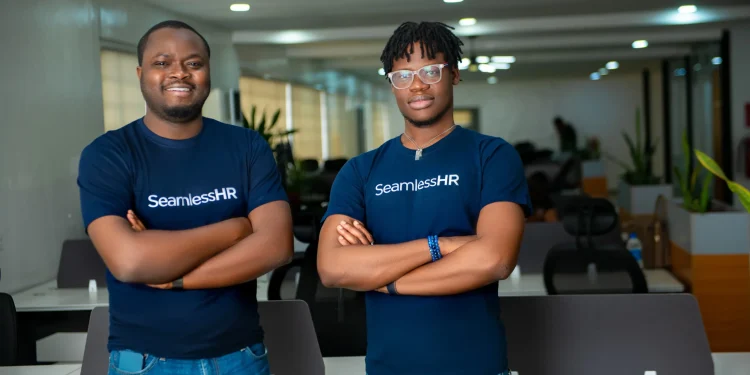SeamlessHR, one of Nigeria’s leading HR Software-as-a-Service (SaaS) providers, explored a potential acquisition of competitor PaidHR in late 2024, signaling the growing intensity of competition in the HR-tech space. According to multiple sources, informal discussions were initiated but did not progress to a formal offer.
Inside the Talks
Sources familiar with the matter revealed that SeamlessHR approached PaidHR during the fourth quarter of 2024, shortly after raising $9 million in a Series A extension round. However, the talks were rebuffed, and no formal indication of interest (IOI) was issued.
Informal acquisition discussions, which typically lack official paperwork, are often used to gauge interest and synergy. In this case, SeamlessHR was reportedly drawn to PaidHR’s innovative cross-border payroll system, which allows businesses to pay employees in different countries using local currencies.
PaidHR’s Growth Story
Since its launch in 2020, PaidHR has been on an aggressive growth trajectory, rapidly expanding its client base to over 200 businesses, including major Nigerian firms like Flutterwave, Oando, and Mavin Group. The company processed ₦11 billion ($77 million) in client salaries in 2023, a sharp increase from ₦2.7 billion ($18.5 million) in 2022.
PaidHR’s cross-border payroll technology, which launched in 2023, has been a standout feature, contributing 9% of the company’s revenue within just 10 weeks of its debut. This innovation has positioned PaidHR as a formidable player in the HR-SaaS market, offering solutions that address the complexities of payroll management across multiple jurisdictions.
Why the Acquisition Matters
For SeamlessHR, acquiring PaidHR could have been a strategic move to consolidate its position in a crowded market. The deal would have absorbed PaidHR’s customer base and added its cross-border payroll feature to SeamlessHR’s product suite, which already includes HR management, performance tracking, leave and payroll management, recruitment, and analytics tools.
With over 20 competitors in the Nigerian HR-tech sector—including BizEdge, Bento Africa, Motherboard, NotchHR, and Ropay—the market is highly fragmented. Customer acquisition costs are high, and switching costs for clients remain significant, making consolidation an attractive option for players seeking to scale efficiently.
Industry Perspectives on Consolidation
The potential for consolidation in Nigeria’s HR-tech space is a hot topic. Some industry leaders argue that fewer, larger companies would improve service quality and scalability.
“The HR payroll space will benefit from contraction,” said the CEO of an HR-SaaS startup who requested anonymity. “The ecosystem is better served by a few larger companies that can deliver high-quality services, rather than many small ones that may struggle with scaling.”
However, others caution that the market may not yet be mature enough for widespread consolidation. “Most players in the region are still in the early stages of product development,” said another HR-SaaS CEO. “For consolidation to succeed, companies need to have reached product maturity.”
This perspective is supported by the example of Deel’s acquisition of South Africa’s PaySpace, which succeeded because PaySpace had over two decades to refine its product and establish a mature offering.
The Road Ahead
SeamlessHR and PaidHR declined to comment on the matter, but industry observers will be watching closely to see how both companies navigate the increasingly competitive landscape. SeamlessHR may explore other acquisition opportunities or double down on organic growth, while PaidHR’s focus on innovation and expansion could further solidify its position.
As Nigeria’s HR-tech sector evolves, the dynamics of competition and collaboration will shape the future of payroll and HR management solutions. For now, the race to become the dominant player in this fragmented market is far from over.

































